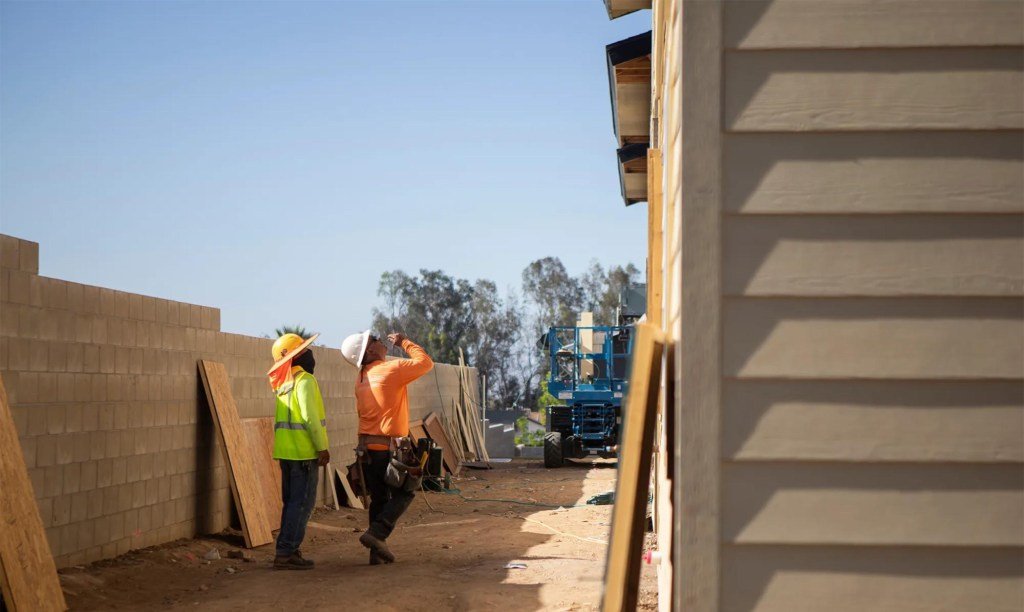California’s Housing Bill: A Last-Minute Wage Controversy Unfolds
On a crisp June morning at a packed Sacramento assembly hearing, labor leaders and lawmakers sat in tense silence. The air crackled with anticipation as Assemblymember Buffy Wicks unveiled a last-minute proposal that could redefine California’s housing landscape. At the heart of the drama lay the financial fate of thousands of construction workers—a group increasingly fragmented by political division. While proponents saw a lifeline for affordable housing, critics branded it a potential “wage grab” that could aggravate a crisis already raging across the state.
A Complicated Bargain
The anticipated housing proposal, which promises new exceptions to the California Environmental Quality Act (CEQA), simultaneously introduces a set of lower minimum wages for housing construction workers. This political gambit aims to strike a deal between the carpenters union—embracing the changes as a means to aid lower-wage workers—and rival building trades unions, who perceive it as an existential threat to their industry standards. “We’re in a precarious situation,” said Chris Hannan, president of the State Building and Construction Trades Council. “This proposal doesn’t just undercut wages; it jeopardizes worker safety and rights.”
High Stakes Negotiations
The conflict has intensified in the days leading up to crucial budget negotiations, with Governor Gavin Newsom insisting on swift reforms to address California’s acute housing shortage. Recent studies suggest that over 70% of residents believe housing affordability is a critical issue, creating immense pressure on lawmakers. At the crux of the debate lies a stark choice: will California prioritize rapid housing development or safeguard the hard-earned wages of construction workers?
- Proponents argue: The new wage standards could provide substantial raises for non-unionized and lower-wage construction workers, increasing their earning potential.
- Critics contend: The altered wage standards dilute state-determined prevailing wages, risking the established financial framework that supports current workers.
- Economists warn: Reducing wage standards may stymie the very goal of increasing housing construction, as financial security motivates a skilled workforce.
The proposed new wage rates, lower than the prevailing wages, are designed to attract developers seeking to leverage the new CEQA exemptions. “It’s a delicate balance we’re trying to achieve,” notes Danny Curtin, the head of the California Conference of Carpenters. “This could truly elevate many of our non-union workers into a more stable economic position.” However, those words ring hollow to many in the industry, who fear a systematic erosion of their rights.
Political Fallout
Calls for accountability echoed throughout the state Capitol as tensions flared. Assemblymember Chris Rogers expressed his disbelief at the last-minute negotiations, stating, “I didn’t come to Sacramento to cut people’s wages.” His sentiments were shared by many, including Assemblymember Lashae Sharp Collins, who lambasted the lack of consultation with building trades. “This is appalling and highlights a troubling pattern of decision-making that sidelines equally invested stakeholders,” she asserted.
An Underlying Ideology
The bill’s backers, including innovative housing advocates known as “YIMBYs” (Yes In My Back Yard), are heralding this legislative move as a paradigm shift. Brian Hanlon, president of YIMBY California, stated, “This is one of the biggest wins for housing in a generation. If executed, it will set a precedent for future housing policies.” Nonetheless, this would require vigilance, as those fighting for workers’ rights push back vigorously.
Historical Context and Future Implications
This proposal builds upon decades of legislative evolution surrounding California’s housing initiatives. The prevailing wage standard has historically been a crucial bargaining chip in negotiations over housing projects. However, the current proposal signals a departure from previous strategies that emphasized maintaining fair wages through stringent labor laws.
The implications are profound. A hypothetical study by the California Labor Research Institute projects that a full rollback on prevailing wage laws could result in approximately 25% fewer skilled workers entering the construction workforce, exacerbating an already alarming talent shortage in the state.
Mixed Reactions Across the State
The reception among stakeholders illustrates the contentious landscape. Many developers see an opportunity. “Prevailing wage laws have made smaller projects economically unfeasible,” argues Evelyn Ramirez, a leading developer in San Diego. “This new proposal allows for more economically viable housing solutions.” However, this view contrasts sharply with that of established unions who argue that lower wages will jeopardize safety protocols and job performance.
This trend poses a long-lasting risk, not just to unions, but to the communities that depend on quality construction jobs. If they are significantly disadvantaged, workers may flock to other industries, which could lead to reduced overall safety standards in housing construction.
Paths Forward
With the proposal set for vote on Friday, the stakes couldn’t be higher. It’s become clear that California is at a crossroads—a moment that will define not only the future of housing in the state but also the livelihood of its construction workforce. Many scholars, like UC Davis law professor Chris Elmendorf, are taking a watchful stance: “This bill could either be the beginning of a collaborative, more inclusive policy landscape or a significant setback that encourages further division.”
The conclusion to this dramatic saga remains uncertain, as the clock ticks down to a final vote. Yet one thing is clear: California’s complex political narratives about housing, labor, and economic equity will continue to unfold in the days, months, and years to come.





